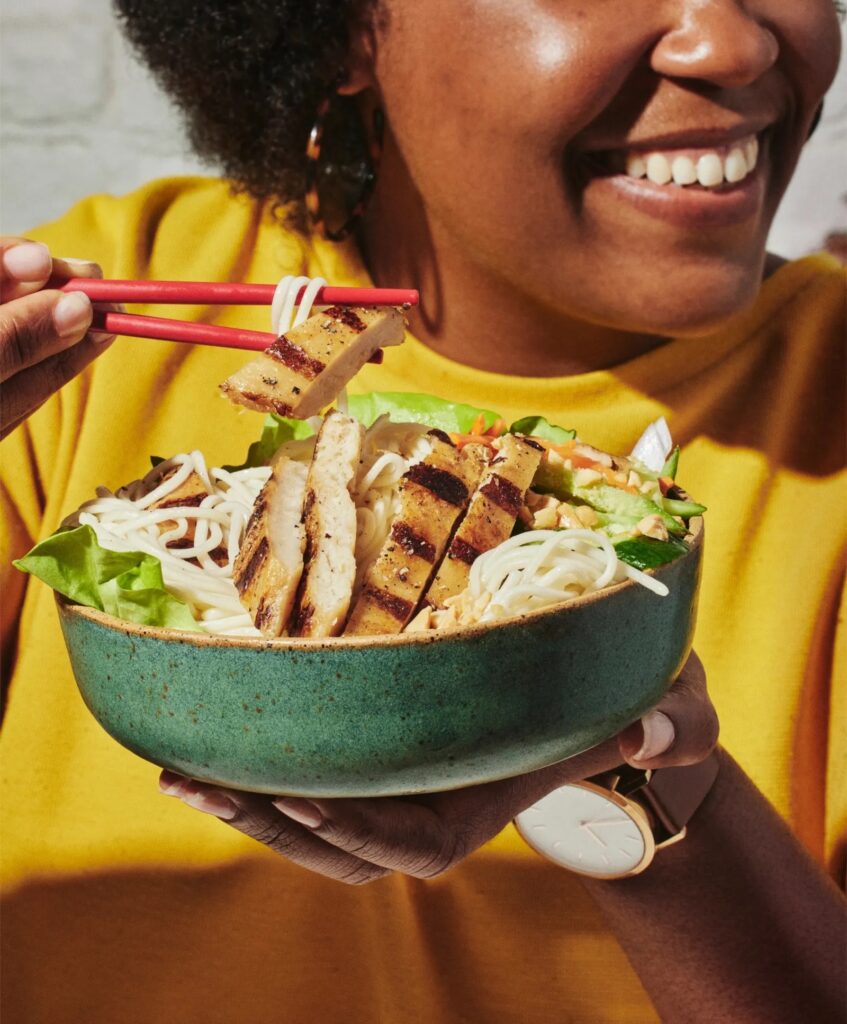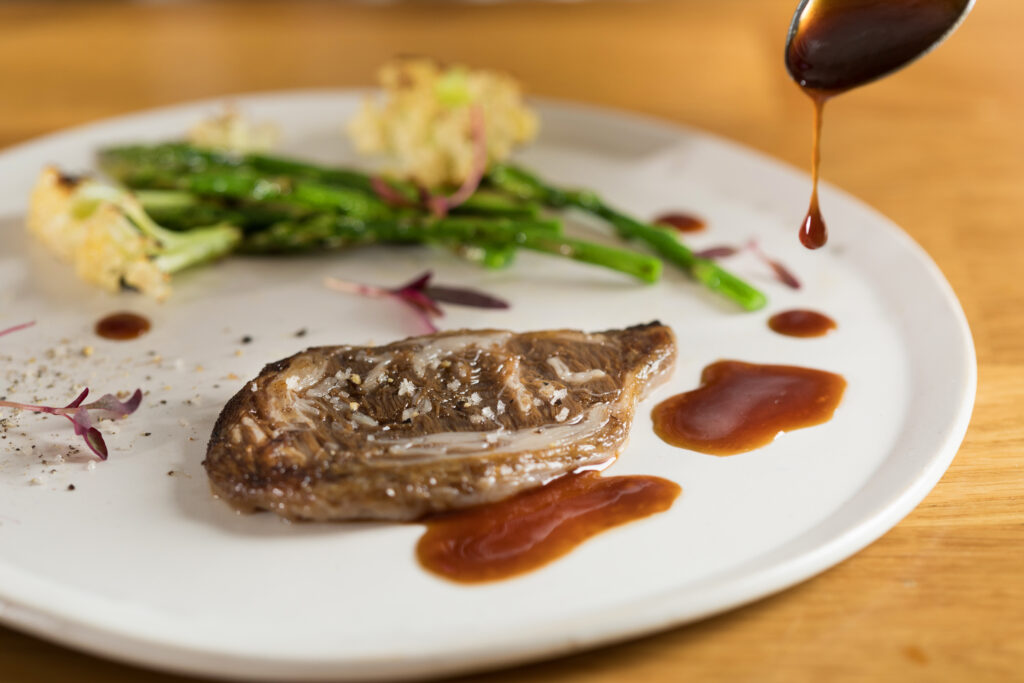
The UAE’s capital has begun work on establishing a framework for novel food approvals aligned with best practices from international regulators.
Abu Dhabi is doubling down on its promise to boost food security through future-friendly food, launching a new strategic initiative to develop a regulatory framework for novel proteins like cultivated meat and animal-free dairy.
The endeavour was born out of a collaboration between the Abu Dhabi Agriculture and Food Safety Authority (ADAFSA), the Quality and Conformity Council (QCC), and the Abu Dhabi Investment Office (ADIO).
The move aims to position the Emirati capital as a global leader in food innovation, reducing approval timelines by six to nine months and accelerating market entry for novel foods.
It comes just a day after ADIO teamed up with Vivici and The Every Company to explore the establishment of a four-million-litre precision fermentation facility. The partnership was also said to support the creation of a regulatory pathway for these animal-free proteins.
Abu Dhabi’s regulatory framework to align with ‘international best practices’

The development of this regulatory framework “embodies Abu Dhabi’s commitment to adopting the highest global standards for food safety and innovation”, according to Dr Tariq Ahmed Al Ameri, acting director-general of the ADAFSA. “It enhances the readiness of our regulatory ecosystem to embrace emerging technologies such as cultivated proteins and precision fermentation-based foods.”
The framework will put in place a comprehensive and streamlined system for novel foods, in alignment with international best practices, including those adopted by the UAE, the Gulf Cooperation Council, the EU, Singapore, and the US.
As part of the initiative, the Abu Dhabi government will look to simplify procedures and speed up commercialisation by unifying registration requirements for new food products, halal certification, and production and import permits through a single-point contact system.
It will further introduce a science-based risk assessment approach based on the type and maturity of technologies, and update the halal certification system to align with modern advancements and global benchmarks, particularly those of Malaysia and Indonesia. This, in turn, will strengthen international recognition of UAE halal certificates and boost the competitiveness of national food exports.
In addition to these elements, Abu Dhabi will develop a national database of approved food products, alongside detailed technical and regulatory guidelines, in an effort to ensure transparency and reliability.
“This agreement underscores the Council’s commitment to supporting the industrial and regulatory sectors through robust quality infrastructure services that ensure product conformity, particularly halal products, to the highest safety and quality standards,” said Fahad Gharib Al Shamsi, acting secretary-general of the QCC.
The novel food sector’s focus on halal certification extends beyond Abu Dhabi and the UAE. Leading Islamic authorities in Singapore, South Korea and Qatar have all issued fatwas supporting Muslims’ consumption of cultivated meat. Shariah scholars in Saudi Arabia and the Assembly of Muslim Jurists of America have also made similar conclusions.
Food security driving Abu Dhabi’s novel food regulation

The Abu Dhabi government noted that the initiative aims to drive economic growth and food system resilience by leveraging cutting-edge food technologies and attracting high-value agrifood and biotech investments.
But at the heart of the UAE’s regulatory advancements for novel food is its bid to become the world’s most food-secure nation by 2051. Currently, it relies heavily on food imports to meet 90% of its population’s needs.
Last year, the capital established an AgriFood Growth and Water Abundance (AGWA) cluster to bolster food and water security with advanced technologies. It’s set to contribute Dhs 90 billion ($24.5B) in additional GDP to Abu Dhabi’s economy and create 60,000 new jobs by 2045, with an expected investment of Dhs 128 billion ($34.8B).
“With a focus on accelerating the adoption of advanced solutions such as alternative proteins and precision fermentation, this collaboration reflects our commitment to the UAE National Food Security Strategy 2051 and reinforces Abu Dhabi’s role as a global centre for food innovation,” said ADIO director-general Badr Al-Olama.
“This partnership is designed to build a connected business ecosystem that combines forward-thinking regulations with Abu Dhabi’s strong investment ecosystem and solid support for technological innovation,” he added.
Food security is also the target of alternative protein companies eyeing the UAE market. As revealed by Green Queen, Israel’s Aleph Farms is planning to file for regulatory approval of its cultivated beef in the country.
“We have a strong agenda in terms of food security at Aleph Farms, which is raising a lot of interest, essentially because of the geopolitical tensions, tariffs and disruptions of supply chains globally, especially for animal proteins,” its co-founder and CEO Didier Toubia said last month.
In 2024, AGWA also partnered with fellow Israeli cultivated meat firm Believer Meats to establish a regional headquarters in Abu Dhabi, with the two entities working together to establish a regulatory pathway and halal certification standards.
The post Abu Dhabi to Launch Framework for Regulatory Approval of Cultivated Meat & Novel Proteins appeared first on Green Queen.
This post was originally published on Green Queen.